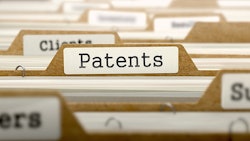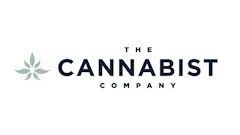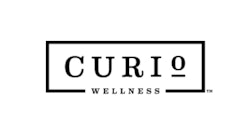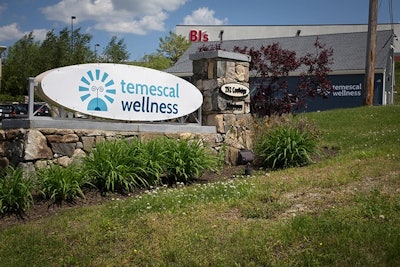
Temescal Wellness has been first to market in many of the jurisdictions in which it operates, and has won over local communities and regulators with its focus on quality products and one-on-one customer education, according to Director of Retail Philip Poirier.
The company was founded in 2015 and has opened locations in New Hampshire, Maryland and Massachusetts. Two of the company’s three dispensary locations in Massachusetts are co-located, meaning they can serve both medical patients and adult-use customers. In New Hampshire, the company also operates a cultivation facility.
“We’re very compliance-focused,” Poirier tells Cannabis Dispensary. “Temescal Wellness is a life cannabis company. We offer diverse choices of extraordinary products—[non-]addictive, 100-percent lab tested plant products. … When we combine those high-quality products with our personal guidance and our personal touch, it really helps to amplify the happiness and the health of everyday people who use cannabis, no matter where they are in life’s journey. We have a little bit of something for everybody.”
Here, Poirier discusses how Temescal Wellness offers personalized customer support and education in the markets it serves, and how this approach varies based on the individual customer.
Cannabis Dispensary: What is the company’s overall approach to customer education? How does this approach differ based on the state market, as well as medical versus adult-use customers?
Philip Poirier: Our main priority is guest wellness. We [opened] up in New Hampshire at first, [and] being in such an earnest medical state really teaches you a lot about compassion, a lot about how the cannabis program operates. We want each individual to find the least amount of medication needed to provide symptom relief, and that’s what our goal is.
With the different states, the big thing is [that] when we approach customer education, it’s going to be different for the different regulations. In Massachusetts, we tailor our education more around what the carry limit is for an adult-use consumer, or what the limit is for a patient—10 ounces within the 60-day, two-month period.
Outside the different minutia of the different state’s policies and procedures, how we approach adult-use and patient education is very similar. It’s about the delivery methods. It’s about the dosing options and finding what makes that individual comfortable. What are they going to be confident in? We’re trying to start them off on the right foot. We’ll offer consultations to everyone who comes into our facility. If it’s someone’s first time in the facility, education is the main staple of what we do. We’re more than happy to give them one of our patient handbooks, which is one of our own documents that we’ve curated, which goes through everything from how to get a card [to] a little bit [of] the company’s background, [and] goes over our delivery methods and dosing options.
We have a wonderful patient strain log, [where] we encourage every individual to track what kind of cannabis they’re taking—how many drops or doses or how many puffs did they take, and what effect did they feel off that product? We encourage them to bring that document back in to us. The more we know, the better that we can help them.
We like to say that cannabis can be imperfectly perfect—everyone should find some symptom relief with it, but it’s not black and white. There’s no one right answer for any given individual. So, we sit down with the patient, we sit down with the guest, and we get them comfortable with the delivery method and the onset and the duration differences between [products]. If someone says that they have symptoms and they need symptom relief most in the morning, we probably wouldn’t talk about edibles, then, because edibles can have a one-to-two-hour onset time, and if you’re in pain, one to two hours is an absolute eternity. Even if you’re not in pain, one to two hours can be a really long time. So, if you’re starting your day in a lot of pain, we would look at methods like inhalation. We would maybe look at topical methods that you can apply. We have transdermal patches that you can use, or the traditional means of flower, which they can smoke or vaporize.
We ask a ton of questions and we ask for a lot of indicators, and we want to find out what the framework is for their schedule and their medication and what their dosing options might be. We work with the guests one-on-one to really help figure out when they may need it. Have they tried it before? What options are there? Then we can look at it and we can fine-tune what they tried and what their expectation and outcome was, and what they were trying to accomplish. We piecemeal it together and give them a basket of different products they can try. Many people find it’s a combination of different medications. People who use edibles very frequently will also use methods of inhalation. They may use capsules in the evening because it’s longer lasting—it’ll last for six to eight hours, so it helps carry them throughout the evening a little more effectively. A concentrate or a disposable cartridge is going to be a faster onset and a shorter duration. It’s a mix and match of different products, and it’s about educating the consumers on what’s out there.
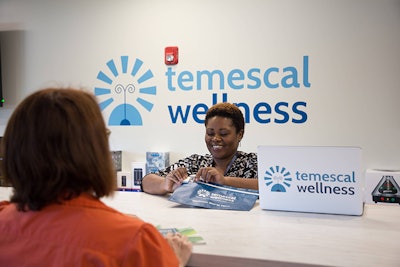
CD: How would budtenders approach a first-time customer versus a returning customer? How would they work through the process of determining which products or delivery methods will work for each?
PP: If it’s a first-time consumer, we’ll offer them a sit-down consultation to see if they want to go over everything the program has to offer and everything that Temescal Wellness has to offer. One of the things we notice in Massachusetts is this is a much more sophisticated consumer base. It’s an open market. You can go to any dispensary. The program has been up and running for a handful of years now. So, if someone comes in and we greet them, “Welcome to Temescal Wellness. Have you been here before?” and they say no, we follow up with, “Well, is this your first time in a dispensary?” and usually, it’s not. They’ve been somewhere else. They have a little bit of a background on the products that are available out there. And if they have been in here before, we’re asking similar lines of questions: “How did the product work for you recently? What symptoms were you really trying to help?”
Even on the adult-use side, we still try to approach it from that medical perspective. Just because someone is using it recreationally, it doesn’t mean they’re not finding therapeutic relief out of it, whether it’s stress, appetite, anxiety, sleep—whatever it may be.
If it’s someone who’s coming to the facility who’s never been here before, you’re really holding that individual’s hand a little bit more. Our conversations are going to be a little bit more in-depth about why they need cannabis. What has their reaction to cannabis been, even if it was 20 or 30 years ago? What does their current life schedule look like now, in terms of when they might need symptom relief? It’s more science-heavy. We’ll talk more about the cannabinoids, the terpenes, and we’ll talk about the entourage effect that [they] have with one another. There’s a little more science involved with the first-time consumer than with someone who has been here before. Once someone has been here, it’s working through what they purchased last time and trying to find if there’s any area of opportunity that they may be missing that can help them navigate through the lows of life or really embrace the highs of life.
CD: What sort of training does the company have in place for budtenders to teach them how to interact with customers and provide this education?
PP: Being open for handful of years now in the different states, we’ve done a really good job at being able to curate our own training materials. When we opened up in New Hampshire, we had a handful of staff who worked for us who were registered nurses, and we were able to pull in information from different expertise and backgrounds. We talk a lot, from the medical side, about protecting health information and HIPAA compliance and privacy. There’s much more that goes into the training outside of just cannabis and cannabis science. It’s a highly regulated industry, so our training goes really deep, beyond just the cannabis science. The team is really training people to provide a compassionate, understandable and knowledgeable guest experience to everyone who comes into the facility, and the best way to do that is through those one-on-one conversations they’re having with the guests.
We have materials from online databases that we use in-store. We do a ton of roleplaying. Many times, people will [spend] their whole lives telling their kids, “Don’t do drugs,” and now they feel a little hypocritical coming in and buying cannabis. It’s getting them to understand that this is plant-based medicine. This is a healthy alternative for you. So, how do you deal with those consumers and those interactions?
The company is built on the pillars of wellness, quality and community, and we’re always curating our own internal documents to help in any situation that may arise dealing with the state, dealing with compliance, dealing with guest education and the consumer experience.
Editor’s Note: This interview has been edited for style, length and clarity.









